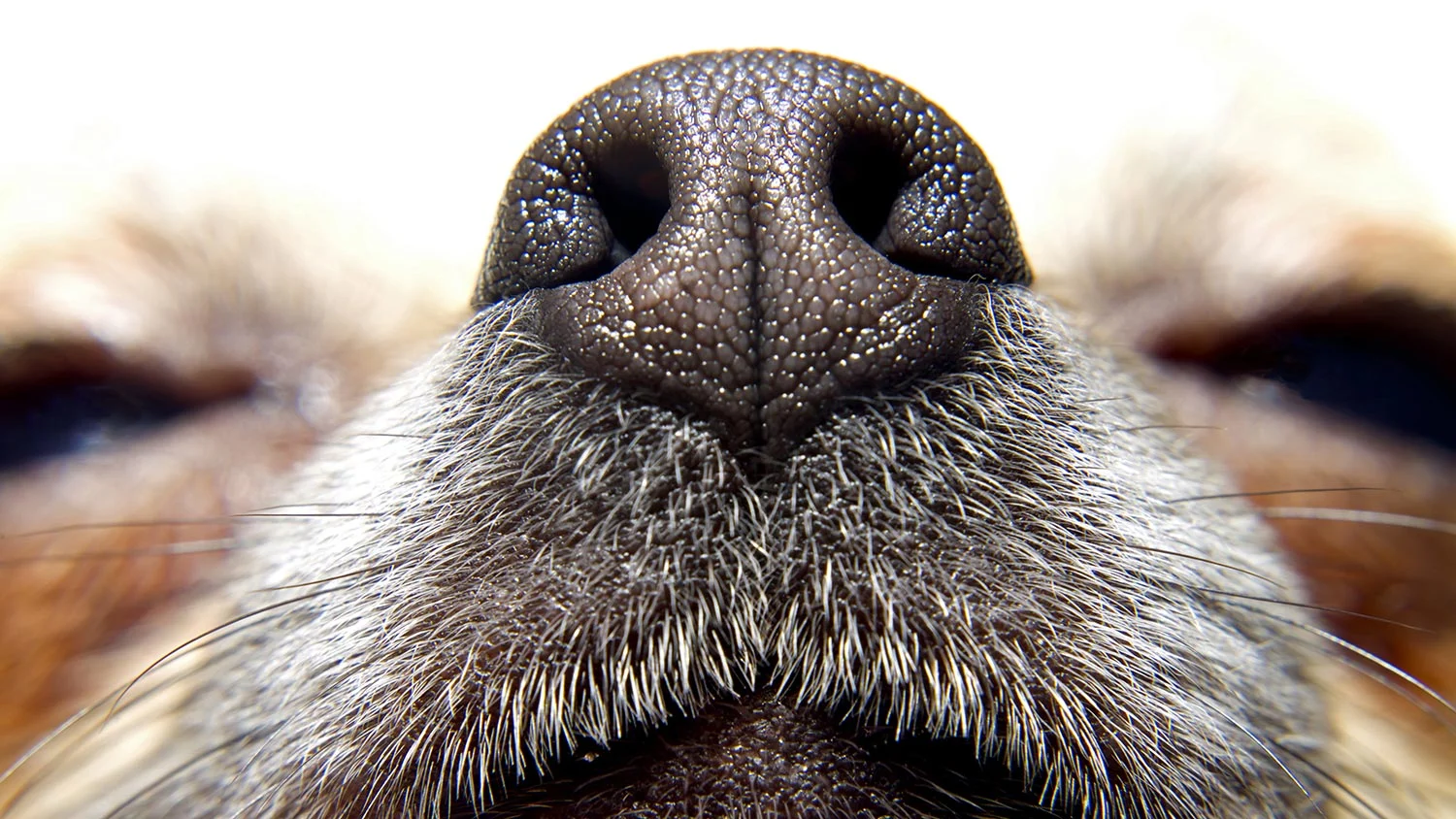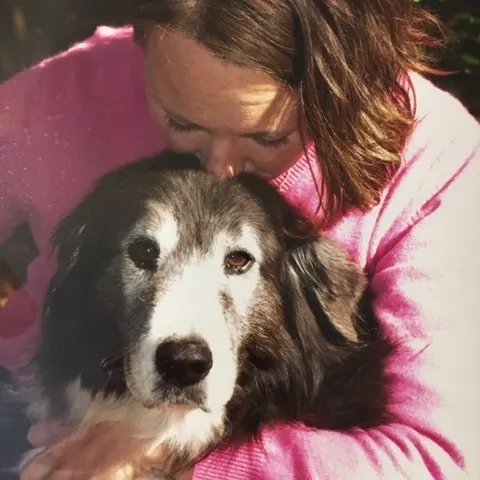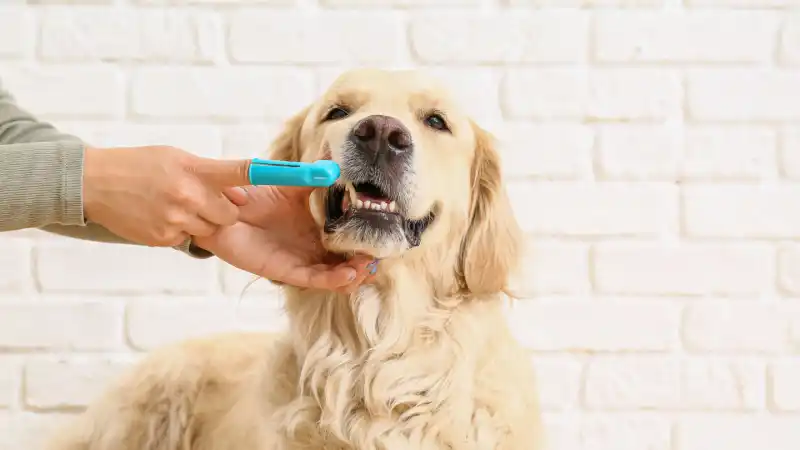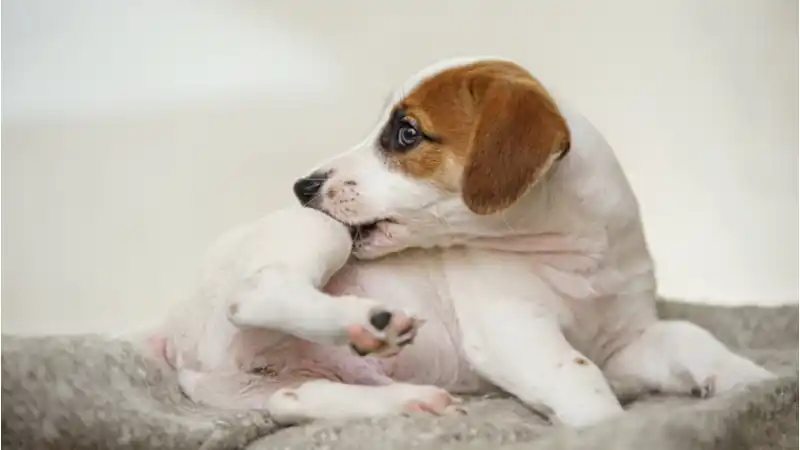How to Quell the Canine Smell
It is no secret that dogs can smell a little... "funky." Find out why your dog could be a little stinky and if it is related to her health or not!

5 Reasons Your Dog May Stink
Tulips, dandelions, honeysuckle, cotton candy and freshly baked cookies - put these on the list of things that don’t smell like your dog! Dogs, like any animal species, have their own odor, and if you are lucky, your dog’s smell is inoffensive. However, there will be times when the dog in your life smells more like garbage and grease than the sweeter things in life! When your pup’s odor becomes unbearable, you may need to investigate the source.
Offensive canine odor can originate from something obvious, like skunk spray or rolling in garbage, or it may come from something more discreet, such as moderate tooth decay or yeasty ears. Regardless of the reason, if your dog is persistently stinky, consider a few of these possibilities.
Not-So-Pearly Whites
When your canine companion stares lovingly at you and pants with gleeful satisfaction, does her hideous breath make you hold your own? Take a moment to gently lift your pup’s lips and evaluate her teeth and gums. If teeth appear yellow, brown, or grayish, your dog is overdue for a vet visit and likely a dental cleaning and evaluation. Bright pink irritated or bleeding gums are also a strong indication of chronic dental issues. Regularly scheduled dental care is a key component in preventive pet health maintenance. If you haven’t kept up with your pup’s dental hygiene, don’t be discouraged. It’s never too late to begin a dental health program, and the benefits of better breath and improved general health are immediate!
Packed in the Back
If your dog is dragging her behind on the carpet or in the grass, she is not trying out a new trick! Her back end is likely itchy and painful, and these symptoms, along with a strong, unpleasant, musky odor, are suggestive of anal gland impaction. Healthy anal glands produce a smelly fluid that is naturally expressed during bowel movements. It serves to lubricate the movement as well as to identify your dog among other dogs—this is why dog greetings involve a lot of seemingly inappropriate sniffing! If the glands become impacted or infected, bowel movements can become painful and difficult, your dog’s anus will itch, and your dog will have a persistent, unmistakable, musky smell. So, when your pup is doing the “scoot,” it’s time to have her anal glands manually expressed by staff at the vet clinic.
The Itch That Can’t Be Scratched
Itchy dogs are a common phenomenon at most veterinary practices, and for good reason. Canine skin is sensitive to diet, parasites, allergies, and infection. All dogs will need to scratch from time to time, but when your pup just can’t scratch that itch well enough, she may resort to licking, chewing, and biting her skin. Once this type of behavior begins, it is difficult, if not impossible, to stop it without first treating the cause of the itch, so a trip to the vet is in order. Your visit may include a skin scraping, a dietary inquiry, and a prescription for antihistamines and antibiotics.
The Dog Did It
Is that special canine of yours passing gas a little too often? Dogs can experience flatulence for a number of reasons, but it’s most commonly due to factors related to diet. If your dog is constantly clearing the room with an unfortunate stench, give some thought to what he’s eating. Evaluate any changes in diet; has she had a recent special treat or a late-night rendezvous with the kitchen garbage? If her diet hasn’t changed significantly in recent weeks, and your dog is behaving and eating normally, you may simply need to offer your pet a different meal plan. There are hundreds of dog food options on the market and understanding what is best for your pet can be difficult. To identify a few of the most appropriate choices, consider a consultation with a canine nutritionist, or make an appointment with your regular veterinarian to discuss.
Yeast on the Rise
Healthy canine ears do not have an odor, so if your pup has stinky ears it’s a pretty clear sign of an ear infection. Other symptoms are ears that are itchy, irritated, bright pink, or have dark, greasy discharge inside, and behaviors like scratching the ears, head shaking, or keeping the head tilted. Infected ears can be caused by yeast or bacteria and the only way to identify and eradicate the culprit is by examination under a microscope. A visit to the vet will generally diagnose and treat the problem quickly, often with topical or systemic antibiotics.
Sweet smelling dogs are just more fun to be around! So, if your pup is fogging the room or driving all your friends away with her stench, it’s time to seek out the source! Look for the obvious and the not-so-obvious causes and consider consulting your veterinarian.

Melissa is a dedicated animal lover, with a soft spot for rescues and critters with special needs. Melissa owns and operates Paramount Show Stables, a horse boarding and training facility, and is working toward certification as a veterinary technician, putting in hours at a local small animal clinic. When she's not caring for four-legged creatures, Melissa enjoys playtime on the farm with her husband and two young daughters, her fantastic family dog, four cats, and a farm full of horses!
READ MORE ARTICLES

